Home • Economic Development • KX Aquaculture Transition Plan – Science Workshop & Community Meeting
KX Aquaculture Transition Plan – Science Workshop & Community Meeting
What does the future of Aquaculture in KX Territory look like to you?
Canada’s Department of Fisheries and Oceans (DFO) has funded First Nations communities to create plans to improve aquaculture’s sustainability. The Kitasoo Development Corporation is ready, passionate and motivated to facilitate this ambitious community project that will positively impact Kitasoo Xai’xais aquaculture, environmental stewardship, seafood industry growth and economic prosperity. With the future of the community at heart, Kitasoo Xai’xais members are invited to discuss the future of aquaculture in the territory during community meetings that will be held on January 10th & 11th, 2023. This collaboration strives beyond just improving current practices – it aims to propel Kitasoo Xai’xais aquaculture into the future.
Community Events – January 2023
Environmental Science Workshop
January 10th, 2023
10 am-5 pm
Community Hall
Community Meeting
January 11th, 2023
5 pm – 9 pm
Community Hall
Explore the innovative possibilities of aquaculture in Kitasoo Xai’xais territory. Join us as we dive into how we can improve the Kitasoo Model – BC’s leading framework for aquaculture. The evening will start with a delicious catered dinner and end with a prize draw for a $200 BC Ferries Gift Card!
The survey prize draw winner for a $100 BC Ferries Gift Card will also be announced. Share your thoughts and ideas about Kitasoo Xai’xais aquaculture by taking the survey and be automatically entered to win. *Contact info must be provided to be eligible to win.
Science Workshop – Meet the Experts
Meet the finfish and aquaculture experts that will be presenting at the Environmental Science Workshop in Klemtu on January 10th.
Dr. Simon Jones
Research Scientist at Fisheries and Oceans Canada
Dr. Simon Jones leads the Marine Parasitology Program at the Fisheries and Oceans Canada’s Pacific Biological Station in Nanaimo, British Columbia. Simon has a Ph.D. in zoology from the University of Guelph and post-doctoral research experience in fish immunology at Wageningen University in the Netherlands. Previously, Dr. Jones developed commercial vaccines used in salmon aquaculture. His current research addresses the factors responsible for proliferative gill disease in cultured salmon, and mechanisms underlying the highly variable susceptibility to sea lice among species of Pacific salmon. In addition, he advises the Canadian Government on the likelihood and consequences of risks to wild salmon posed by infection and disease in marine-reared Atlantic salmon. Dr. Jones has published over 175 scientific papers, reports and book chapters in fisheries parasitology.
Dr. Crawford Revie
Epidemiologist in the Atlantic Veterinary College’s Department of Health Management at the University of Prince Edward Island
Dr. Crawford Revie’s research specialization involves applying informatics techniques to epidemiology, which is fancy language for applying math and modelling techniques to better understand biological and environmental data and information and applying theory foundations to this data. Crawford has been established as a significant research expert in the population dynamics and modelling of sea lice on salmon farms, including overseeing research studies in BC.
Dr. Richard Beamish
Emeritus Scientist at the Pacific Biological Station in Nanaimo, B.C
Dick Beamish was born in 1942 in Toronto, Canada, and started his career as a fisheries biologist in the 1960s. He was the Director of the Pacific Biological Station from 1980 to 1993 and retired in 2011.
His research interests have included the discovery of acid rain in North America, new methods of ageing fish that included the discovery that many species of fish were much older than previously thought. He discovered that large-scale atmospheric changes are closely related to salmon catches by all countries. . He has authored a number of papers on the effects of climate on fish populations. He was one of the first scientists to write about climate regimes and regime shifts He is a member of the Order of Canada, the Order of British Columbia and a Fellow of the Royal Society of Canada. He has published over 350 articles with about half in peer-reviewed journals.
Dr. Sonja Saksida
Assistant Professor in the Atlantic Veterinary College’s Department of Health Management at the University of Prince Edward Island
Dr. Saksida has over 25 years of experience in aquatic animal health. She has extensive clinical and field veterinary experience in Canada and internationally and has worked with over 15 finfish and shellfish species grown in commercial aquaculture, enhancement and research facilities. Dr. Saksida has published over 25 scientific papers and 15 technical reports focusing on fish health issues such as sea lice and antimicrobial use. Dr. Saksida was the CEO of the British Columbia Centre for Aquatic Health Sciences (BC CAHS) in Campbell River, BC, and was the Lead Veterinarian for the Aquatic Animal Health Program for Fisheries and Oceans Canada (DFO) in BC and a Veterinary Programs Officer in the Import/Export Aquatics section at the Canadian Food Inspection Agency (CFIA).
Dr. Saksida is currently focusing on understanding and controlling disease spread and ensuring that fish health management practices remain effective and have minimal environmental impact. Additionally, she is interested in animal welfare and wild/farmed pathogen movement.
Dr. Myron Roth
Team Lead, Aquaculture & Marine Fisheries at BC Ministry of Agriculture and Food
Myron started his career studying sea lice and fish parasitology in BC and Scotland. He has worked in both the private and public sectors with over 30 years of progressive experience in aquaculture, biotechnology, veterinary vaccine and drug regulatory affairs, quality systems, government policy, and business development.
Lance Stewardson
Co-founder of Mainstream Biological Consulting
Lance is from Vancouver Island and works for Mainstream Biological Consulting in Campbell River, BC. and is primarily responsible for marine assessment projects. He has extensive experience evaluating the environmental impacts associated with finfish aquaculture, outfalls and docks and environmental management.
Brian Kingzett
Director of Science & Policy, BC Salmon Farmers Association
Brian has established himself as a career professional in sustainable aquaculture. During his thirty-plus years in aquaculture, his career has specialized in bringing together interdisciplinary combinations of business development, sound science, responsible aquaculture production practices, strategic market-based development approaches and working with indigenous (First Nations) and stakeholder groups.
He was Vice President at Coastal Shellfish, a First Nations-owned private aquaculture business operating on the west coast of Canada with its headquarters in Prince Rupert, cultivating “Great Bear Scallops.” Brian was the Senior Biologist and Vice-President of Affiliated Companies for Nisbet Oyster Co., Inc. for two years in Washington State. He was also the Manager of the $11M award-winning Deep Bay Marine Field Station developed by the Centre for Shellfish Research (CSR) at Vancouver Island University and led this project since its inception.
Brian will be able to speak on global technologies in finfish aquaculture relative to technology and innovation development and opportunity in British Columbia.
TRANSITION PLAN BACKROUND INFORMATION
How did this “Transition Plan” initiative come about?
Our Community’s Contribution: December Update
- Identifying negative impacts on our local wild salmon, and exploring the localized issue of sea lice and other disease/parasite transfer from farmed to wild salmon;
- Understanding differences in salmon farming and impacts across BC – and how our Central Coast environment is similar and different;
- Possibility of farming other aquaculture species, and exploring different methods and technologies;
- Understanding the general health and status of our local salmon runs;
- Understanding the importance of jobs from salmon farming relative to other industries;
- Ensuring the community receives information and is properly consulted on all these issues;
- Better understanding of our local seafood industry and our own seafood access;
- and General jobs and economy in KX


